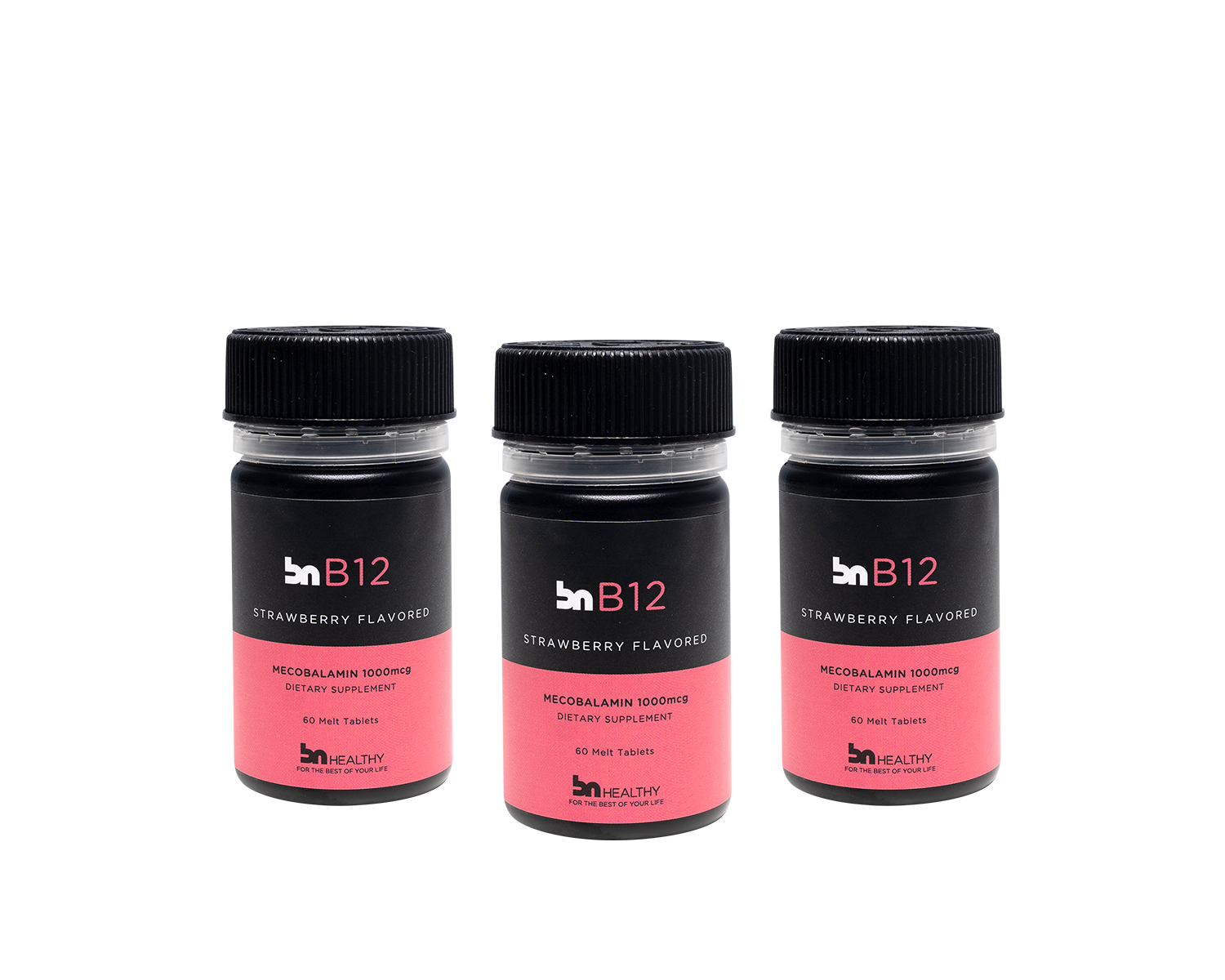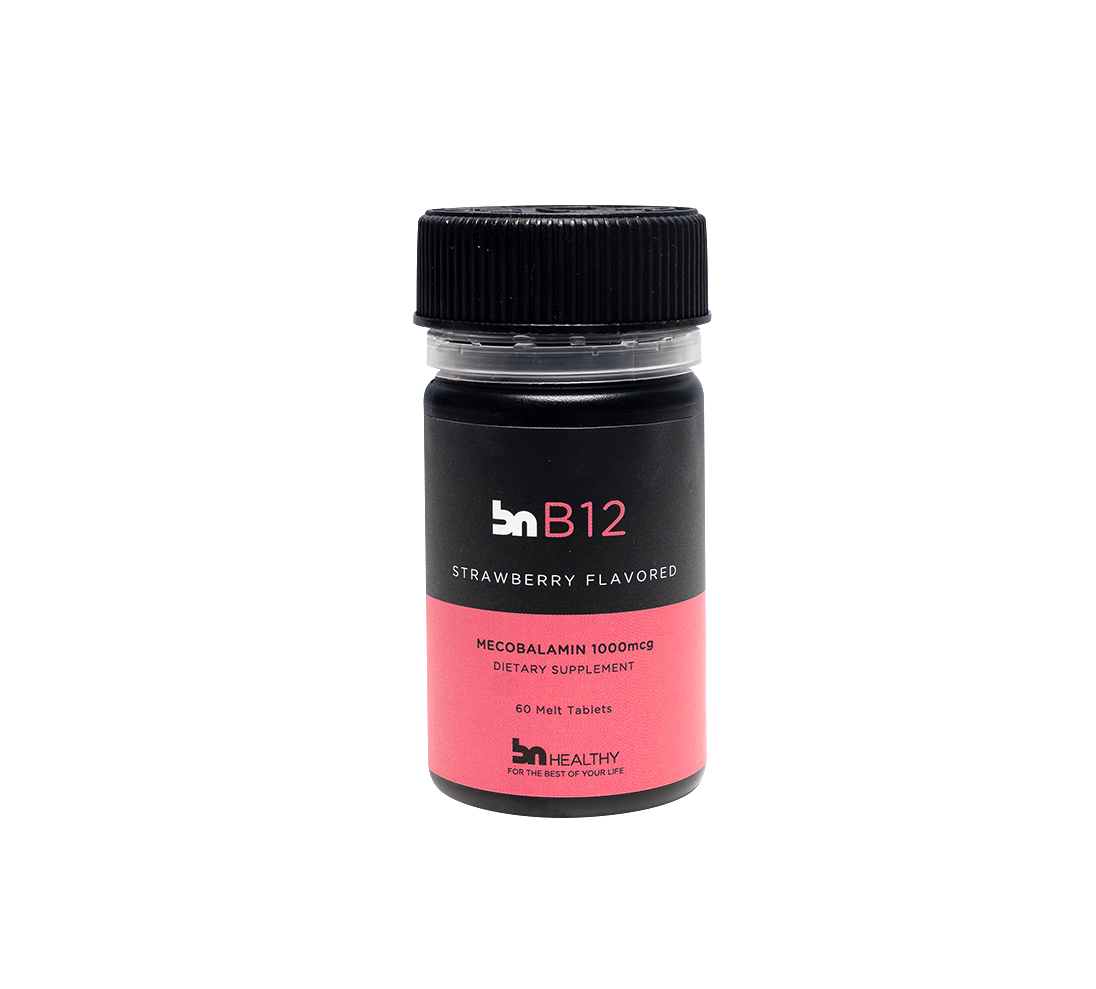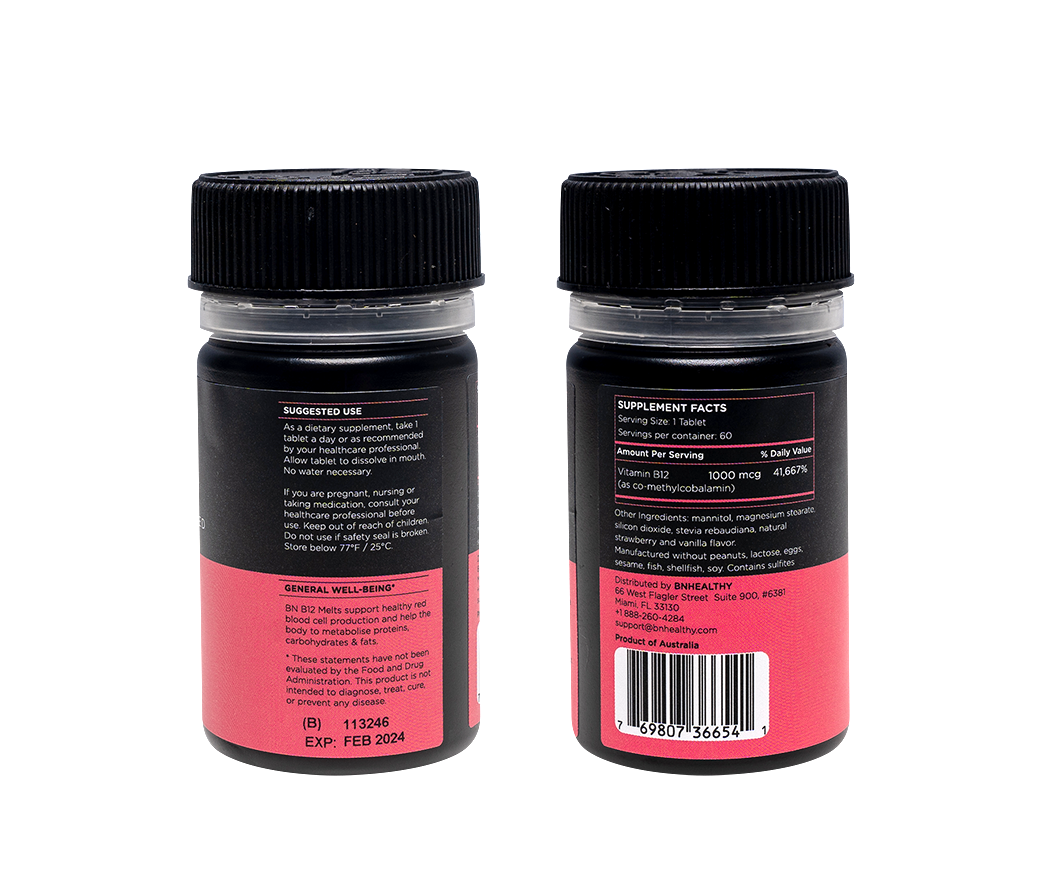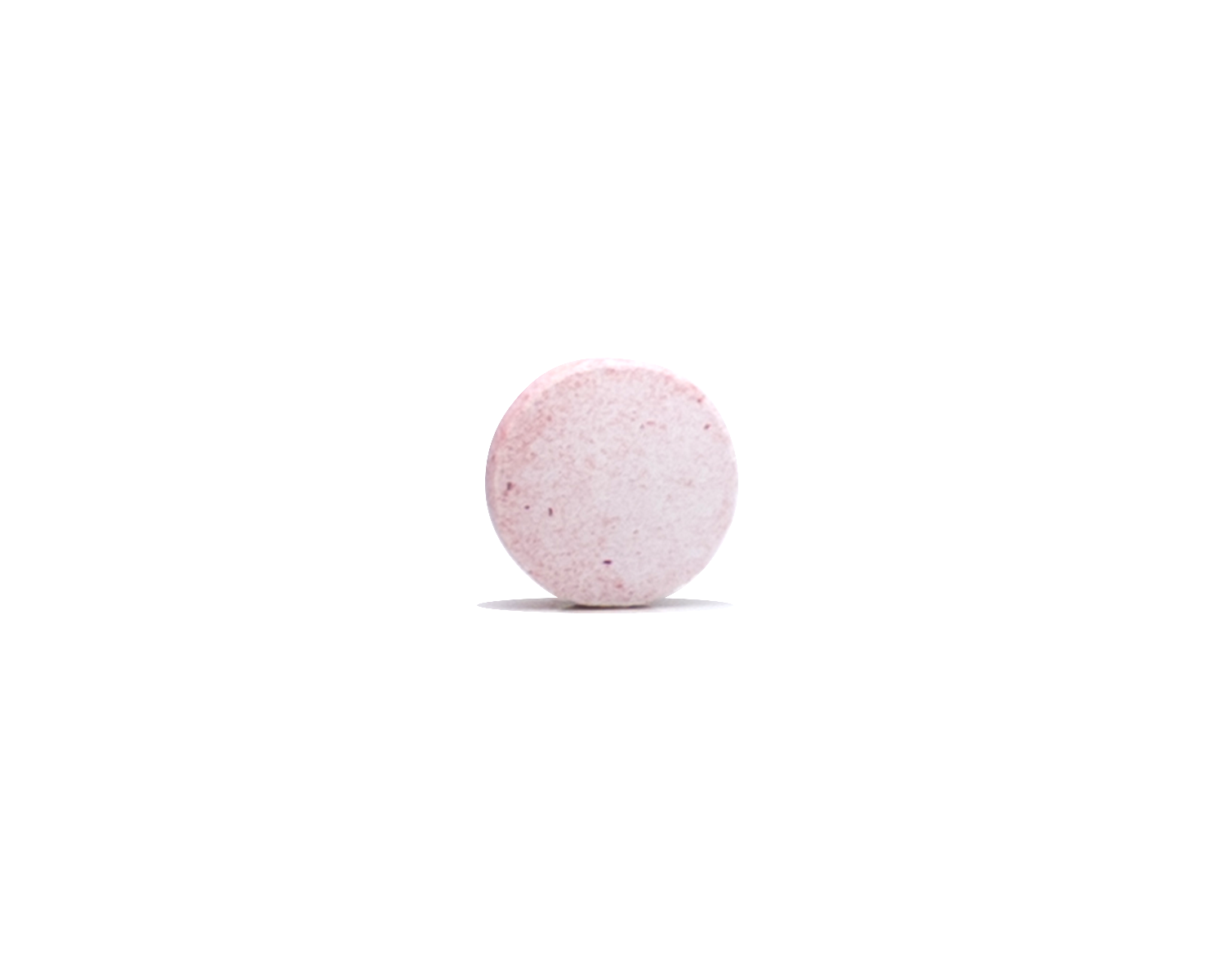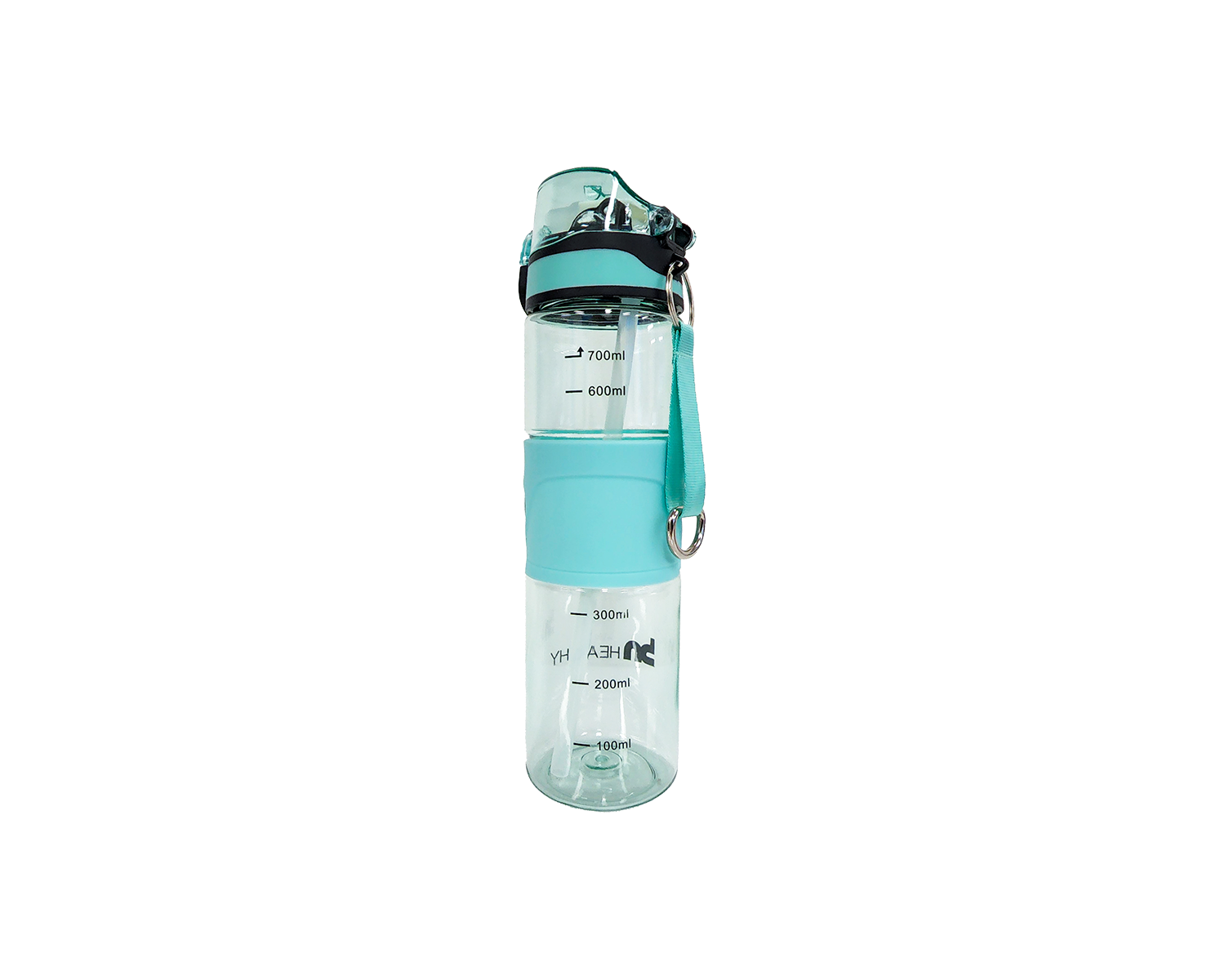January 2023
Foods High in B12
Ideal for Bariatric Patients

Vitamin B12 is one of the most commonly affected nutrients after Bariatric Surgery. Surgical changes to the stomach not only limit the amount of food you can eat (and therefore the amount of B12 you are exposed to) but also reduce the amount of stomach acid you would usually produce.
Stomach or gastric acid is needed to separate B12 from food and bind it to something called intrinsic factor (IF), so it can be absorbed into the intestine. Gastric acid separates the B12 so the body can utilize it. Over time, your ability to absorb vitamin B12 from food sources may be compromised if you produce less stomach acid than usual, which is the case with Bariatric Surgery patients.
The effect is lifelong; therefore, following a diet high in B12 and supplementing the nutrient is usually needed to avoid deficiency.
Postoperative vitamin-related complications have been linked with poor mental health and physical well-being. One study found numerous patients who underwent Bariatric Surgery developed a B12 deficiency six months post-surgery. It is recommended that patients who have undergone bariatric and metabolic surgery take a minimum of 350 to 500 mcg/day in B12 supplements, though 1000 mcg and 2000 mcg doses have also been recommended.
Why is Vitamin B12 So Important?
So what exactly is B12, and why is it so important? B12 is a water-soluble vitamin found predominantly and in the highest amounts in animal foods and products.
It helps us produce blood cells and DNA, keeps our brain and nerves functioning properly, and controls homocysteine, an inflammation molecule. If it is deficient in the body, there can be cognitive, neurological, cardiovascular, and mental health consequences.

Symptoms of Vitamin B12 Deficiency
The list of symptoms of Vitamin B12 deficiency is long, and it is not exhaustive (rather, it's exhausting!). The signs and symptoms are all indicative of issues with the neurological or cardiovascular system. If you are experiencing any of these, it is essential to see your healthcare provider for blood work to check for serum B12 deficiency or other markers of B12 deficiency, such as the MMA test.
- Fatigue
- Tingling or numbness in the hands, legs, arms or feet
- Weakness
- Vision changes
- Abnormal gait/clumsiness and imbalance/lack of coordination
- Difficulty concentrating
- Memory loss, such as forgetting the names of things, confusion, difficulty concentrating, and brain fog
- A smooth or 'beefy' tongue
- Feeling cold all the time
- Palpitations or a rapid pulse
- Behavioral changes and depression
- Shortness of breath (the sighs)
- Pale and/or dry skin
Foods with Vitamin B12
Vitamin B12 is in its highest amounts in animal products, such as eggs, meat, and dairy. As well as Weight Loss Surgery patients and people on proton pump inhibitors to reduce stomach acid, vegans are at particularly high risk of deficiency. Many vegan foods with vitamin B12 come from fortification - where they add B12 to the food, as it is not naturally present, so check the labels before purchasing and make sure it is in there.
The easiest way to ensure your levels of B12 are optimal, though, is to take a B12 supplement or B12 melts. That way, you can ensure that you are covering gaps and bypassing absorption issues.
When looking at the recommended dietary intake (RDI) of vitamin B12, it should be noted that the ASMBS recommends 150 to 200 times the RDI for gastric sleeve and bypass patients (350 to 500mcg per day).
Vegan Sources of B12
- Nutritional Yeast - 5 grams contains up to 7.5 mcg of B12.
- Fortified plant-based milk and cereals
- Fortified vegan spreads
- Tempeh
- Meat substitutes
- Certain seaweeds, such as Japanese and Korean nori

Animal Based Sources of B12
- Milk - One cup contains up to 1.1 mcg of B12.
- Yogurt - One cup contains up to 1.2 mcg of B12.
- Cheese - 100g of cheddar contains up to 0.8 mcg of B12.
- Eggs - A serving of 2 eggs contains up to 1.1 mcg of B12.
- Kidneys and Liver - 100 grams contains up to 72 mcg of B12.
- Sardines - 150 grams contain up to 13 mcg of B12.
- Clams - 100 grams contain up to 99 mcg of B12.
- Beef - 100 grams contains up to 6 mcg of B12.
- Tuna - 100 grams contains up to 11 mcg of B12.

(Food Standards Government Website Australia)
Benefits of B12 Supplements
The restrictive diet Post-Bariatric Surgery can be challenging, making daily intake of specific nutrients trickier than usual. B12 supplements are highly bioavailable to post-op patients, as B12 does not need to be separated from a food source. BN Healthy bariatric supplements ensure that you get the correct dose of vitamins in your system to stay healthy.
There are three forms of natural vitamin B12, methylcobalamin, hydroxocobalamin, and adenosylcobalamin. Methylated B12 is already in its active state and is used in the BN Vitamin B12 melts. Cyanocobalamin is synthetic and needs to be activated in the body.
All forms have been shown to be effective for treating vitamin B12 deficiency, though many prefer the natural forms. Should oral supplementation not work, intravenous B12 may be an option.

Pop a BN Vitamin B12 melt under your tongue, where it dissolves. Each tablet delivers 1000 mcg of B12 vitamin and does not contain eggs, tree nuts, shellfish, soy, peanuts, or lactose.
The Final Word
Keeping up with nutritional challenges Post-Bariatric Surgery is no walk in the park, but knowing what you need to eat and what you need to supplement can help you take control of your dietary outcomes. Food sources of B12 are plenty, but if you are eating less and having trouble digesting animal food products, then a supplement might be a better option for you.



